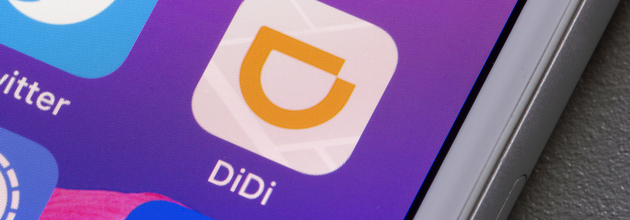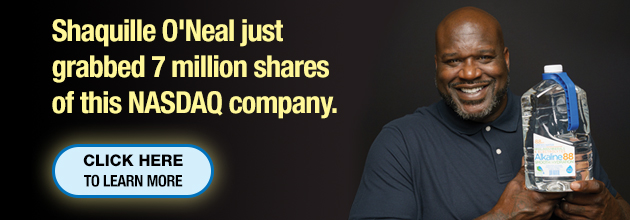
 | Read in Browser | |||||||||
 | ||||||||||
 | ||||||||||
| | ||||||||||
| ||||||||||
Backdrop: Amazon Web Services was considered the frontrunner for the contract before the DoD handed it to Microsoft in 2019. AWS didn't back down. The company alleged in a lawsuit that the award was tainted by then-President Trump's animus against Jeff Bezos and related litigation threatened to delay the deal for years. There was also a slew of objections from Congress, prompting the Pentagon to acknowledge that advances in cloud computing and the timeframe of the contract could render the scheme obsolete.
"The evolving landscape is what has driven our thinking," said John Sherman, the Pentagon's acting chief information officer. "JEDI was the right approach at the time," but with changing circumstances "we're in a different place."
Outlook: The Pentagon is now planning a multi-vendor approach, where more cloud providers including Google (GOOG, GOOGL), Oracle (NYSE:ORCL) and IBM (NYSE:IBM) will be allowed to bid for the new contract. The new deal, known as the Joint Warfighter Cloud Capability, is also scheduled to run no more than five years. Bidders are expected to be identified by about October, with the new contract expected to be awarded in spring 2022. (6 comments)
Download Seeking Alpha for your Phone or Tablet


Like Wall Street Breakfast? Try our other newsletters as well.
This email was sent to you because you signed up to receive Wall Street Breakfast.
If you do not want to receive Wall Street Breakfast emails, click here to unsubscribe.
Sent by Seeking Alpha, 52 Vanderbilt Avenue, 13th floor, New York, NY 10017
"The evolving landscape is what has driven our thinking," said John Sherman, the Pentagon's acting chief information officer. "JEDI was the right approach at the time," but with changing circumstances "we're in a different place."
Outlook: The Pentagon is now planning a multi-vendor approach, where more cloud providers including Google (GOOG, GOOGL), Oracle (NYSE:ORCL) and IBM (NYSE:IBM) will be allowed to bid for the new contract. The new deal, known as the Joint Warfighter Cloud Capability, is also scheduled to run no more than five years. Bidders are expected to be identified by about October, with the new contract expected to be awarded in spring 2022. (6 comments)
Economy
The White House is planning to publish an executive order this week focused on competition policy, according to several news outlets including the NYT. The action would urge the FTC to ban or limit non-compete agreements and encourage the agency to bar "unnecessary" occupational licensing restrictions. It could also embolden the FTC and DOJ to restrict the ability of employers to share information on worker pay or factor in how mergers might affect the ability to negotiate higher wages.
Fine print: The order hinges on the ability of regulators to write legislation that could survive legal challenges. Labor economists see many of the policies set at the state level - like licensing requirements - meaning they can only have a limited federal role.
"The president made clear during his campaign that he is committed to increasing competition in the American economy, including by banning non-compete agreements for workers and protecting farmers from abusive practices," White House spokesperson Emilie Simons said earlier this month.
Note: While the executive order could be controversial among conservative lawmakers who favor less government intervention, some Republicans have opposed non-compete agreements. In 2019, Florida Sen. Marco Rubio introduced a bill to end the contracts for entry-level, low-wage workers. A labor shortage in the U.S. also has employers looking for millions of new workers, while tougher antitrust measures are receiving growing bipartisan support in Congress (like in the case of Big Tech).
Fine print: The order hinges on the ability of regulators to write legislation that could survive legal challenges. Labor economists see many of the policies set at the state level - like licensing requirements - meaning they can only have a limited federal role.
"The president made clear during his campaign that he is committed to increasing competition in the American economy, including by banning non-compete agreements for workers and protecting farmers from abusive practices," White House spokesperson Emilie Simons said earlier this month.
Note: While the executive order could be controversial among conservative lawmakers who favor less government intervention, some Republicans have opposed non-compete agreements. In 2019, Florida Sen. Marco Rubio introduced a bill to end the contracts for entry-level, low-wage workers. A labor shortage in the U.S. also has employers looking for millions of new workers, while tougher antitrust measures are receiving growing bipartisan support in Congress (like in the case of Big Tech).
Today's Markets
In Asia, Japan -1%. Hong Kong -0.7%. China +0.7%. India +0.4%.
In Europe, at midday, London +0.5%. Paris +0.1%. Frankfurt +0.9%.
Futures at 6:20, Dow +0.1%. S&P +0.2%. Nasdaq +0.5%. Crude +1.8% at $74.67. Gold +0.7% at $1807.30. Bitcoin +1.9% at $34625.
Ten-year Treasury Yield -2 bps to 1.34%
In Europe, at midday, London +0.5%. Paris +0.1%. Frankfurt +0.9%.
Futures at 6:20, Dow +0.1%. S&P +0.2%. Nasdaq +0.5%. Crude +1.8% at $74.67. Gold +0.7% at $1807.30. Bitcoin +1.9% at $34625.
Ten-year Treasury Yield -2 bps to 1.34%
Today's Economic Calendar
What else is happening...
Short Hills' Steve Weiss: 'I would not own Chinese stocks again.'
Forever 21, Brooks Brothers owner Authentic Brands files for IPO.
Twitter (NYSE:TWTR) loses user content liability protection in India.
Chip boom! Samsung Electronics (OTC:SSNLF) sees 53% rise in Q2 profit.
Money flowing into oil, gas ETFs at highest rate in a decade.
Archegos fallout... Nomura (NYSE:NMR) pulls plug on part of hedge fund unit.
Newegg (NASDAQ:NEGG) soars as sold-out Nvidia GPUs appear in product lottery.
Universal (NASDAQ:CMCSA) moves its film license deal to Peacock from HBO.
Former Ford CEO: Tesla (NASDAQ:TSLA) facing increased competition in EV market.
Vaccines offer 'best of both worlds' for people who had COVID-19 - Scott Gottlieb.
Forever 21, Brooks Brothers owner Authentic Brands files for IPO.
Twitter (NYSE:TWTR) loses user content liability protection in India.
Chip boom! Samsung Electronics (OTC:SSNLF) sees 53% rise in Q2 profit.
Money flowing into oil, gas ETFs at highest rate in a decade.
Archegos fallout... Nomura (NYSE:NMR) pulls plug on part of hedge fund unit.
Newegg (NASDAQ:NEGG) soars as sold-out Nvidia GPUs appear in product lottery.
Universal (NASDAQ:CMCSA) moves its film license deal to Peacock from HBO.
Former Ford CEO: Tesla (NASDAQ:TSLA) facing increased competition in EV market.
Vaccines offer 'best of both worlds' for people who had COVID-19 - Scott Gottlieb.


Like Wall Street Breakfast? Try our other newsletters as well.
This email was sent to you because you signed up to receive Wall Street Breakfast.
If you do not want to receive Wall Street Breakfast emails, click here to unsubscribe.
Sent by Seeking Alpha, 52 Vanderbilt Avenue, 13th floor, New York, NY 10017



EmoticonEmoticon